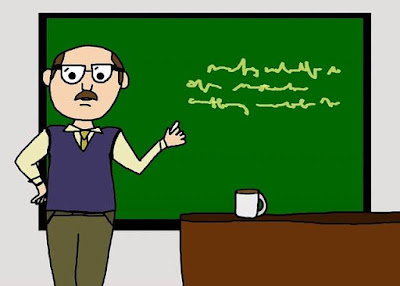It is much easier to complain about something one considers a problem than to offer solutions or to explore possible solutions. Since I've done my share of complaining about political correctness, identity politics, social justice warriorism, efforts to suppress the free expression of ideas, and the like, I figured it was time to consider some of what we might to do get closer to identifying possible solutions. For now, I am going to confine myself to universities in the United States. This is the environment I know best, having spent considerable time there as an undergraduate student, as a graduate student, and as one of the evil liberal professors about which you have heard so many complaints from political conservatives.
I have had a few recent conversations with conservatives about their perceptions regarding what is happening in academia. While I find myself in agreement with much of what they say, I'd like to suggest a change in strategy on their part. Specifically, I'd like to suggest that conservatives are making a mistake by characterizing the whole of academia as nauseatingly liberal, hostile to conservative views, and/or completely lost to identity politics. By making institutions of higher learning and all of us who work there the enemy, they are ignoring the fact that many of us agree with them about political correctness, identity politics, social justice warriorism, and the dangers of suppressing the free expression of ideas.
First, I want to acknowledge that the problem they have identified is real. One can indeed find evidence of political correctness, identity politics, social justice warriorism, efforts to stifle free expression, and a disturbing lack of viewpoint diversity on many campuses. One can also find people from almost all groups (i.e., students, staff, faculty, and administrators) who are pushing this stuff. It is fairly easy to find dramatic and extreme examples, as conservatives are fond of doing.
But while the problem is real, I'd like to suggest that it is misleading to paint the whole of academia with such a broad brush. If one were to select just one campus, one would still find incredible variability. The conservatives who want to believe otherwise should visit the department/school/college of business at their local university and see how much out-of-control progressivism they find there. How many professors in business are indoctrinating their students with "cultural Marxism," postmodernism, feminism, or anything of the sort? Are all these business professors raging liberals? Now try chemistry, biology, physics, computer science, engineering, and math.
Those of us who work in academia know where to find the social justice warriors. We find them mostly in the humanities and some of the social sciences. They are largely confined to these areas. This is not to say that they have no influence on campus; in some cases, they have tremendous influence. But the broad characterization of academia or of professors in general as indoctrinating students in progressive politics or as hostile to conservatives is inaccurate. As I admire the fine collection of German luxury cars in the parking lot where members of the business faculty park, I see little evidence of anti-capitalism, Communism, or other right-wing boogeymen.
Those who object to political correctness, identity politics, social justice warriorism, and the like have more allies among the faculty at their local university than they realize. Let me use my department as one example. It is a fairly large department in the social sciences. The social sciences are notorious for harboring some of the worst excesses of social justice warriorism one expects to find outside the humanities. And yet, during the entire time I have worked at this university, there has been no more than one genuine social justice warrior working among us at a time. Most of the rest of us agree with much of the critique of identity politics, trigger warnings, microaggressions, etc.
And how about me? I value a number of social justice causes, but I do not express my political opinions in the classes I teach because I believe it would be inappropriate and irrelevant to do so. I have never raised or lowered a student's grade due to his or her political views. I address controversial issues with political implications that are relevant to the classes I teach, but I do so by presenting the best data both sides have provided, drawing attention to the relevant methodological flaws, and encouraging the students to reach their own conclusions. I have no interest in indoctrinating anybody's children.
My suggestion to those who are opposed to political correctness, identity politics, and/or social justice warriorism is simple: rather than writing off academia entirely and making sweeping generalizations about all of us who work there, recognize that many of us agree with you. Many of us want no part of political correctness, identity politics, or social justice warriorism. Many of us believe that the only viable way to counter bad ideas is to encourage their expression and then provide reasonable alternatives. Perhaps we could be your allies in this fight if you would stop demonizing us long enough to realize that we often agree with you.
